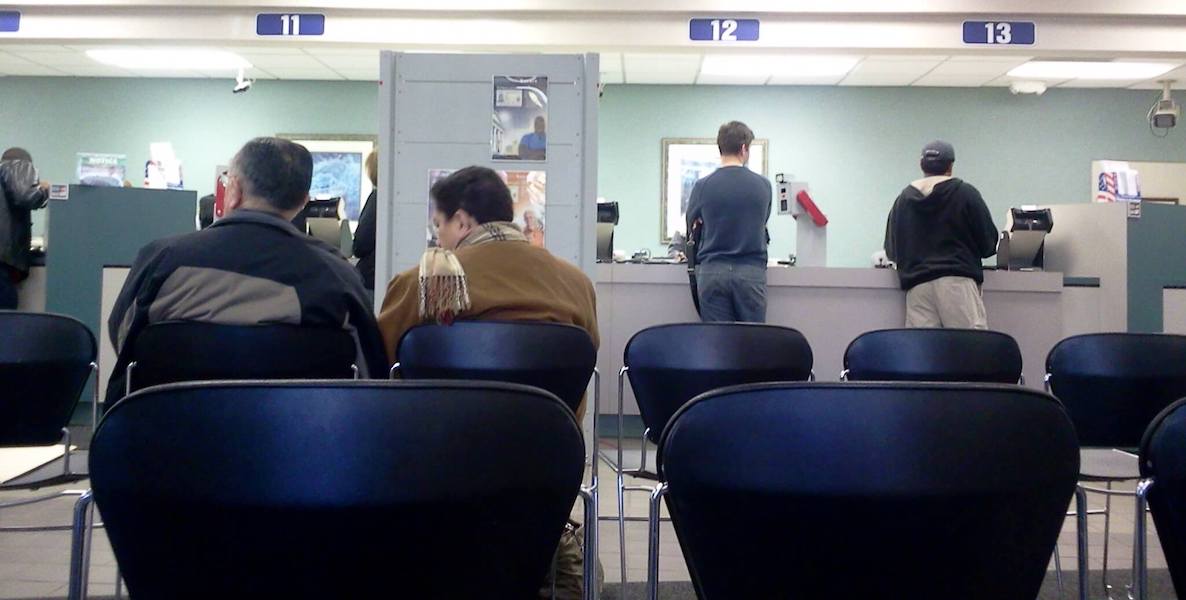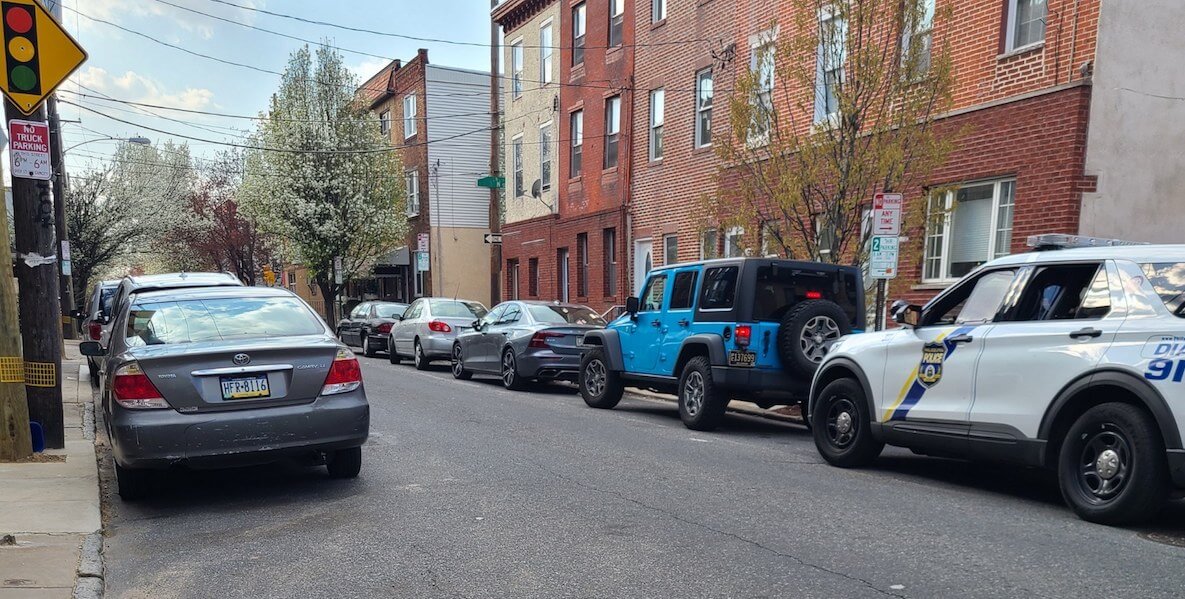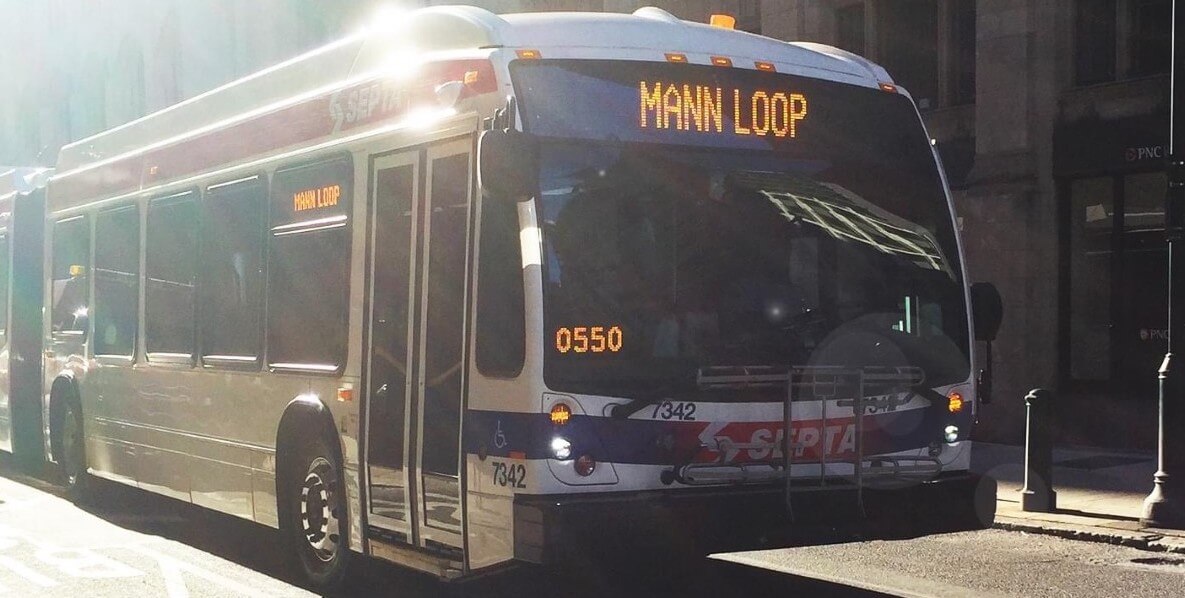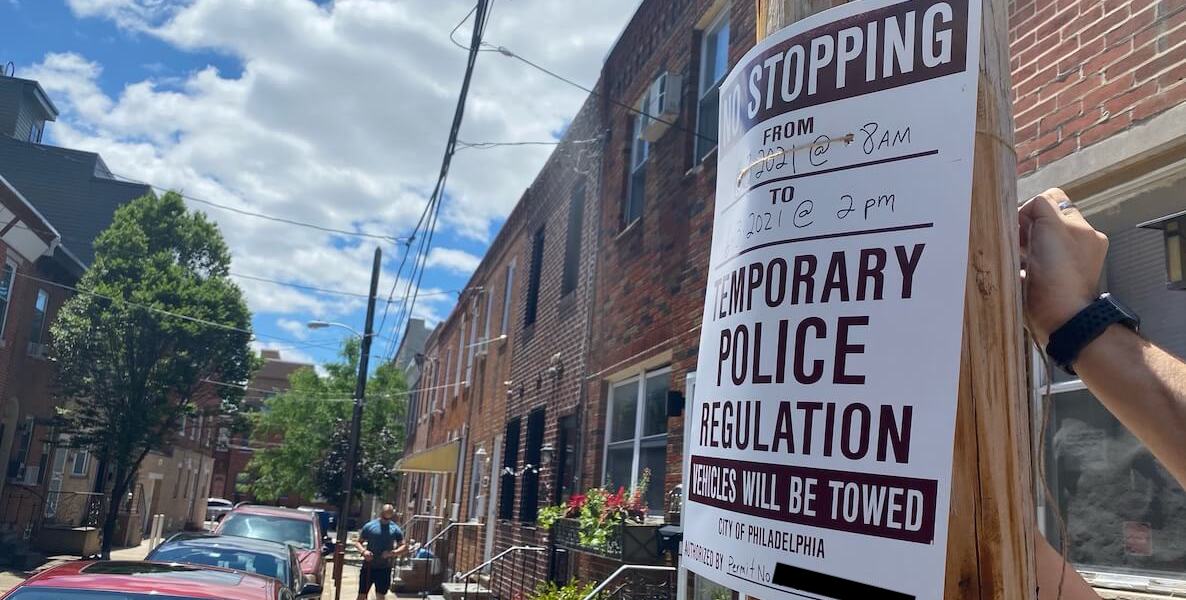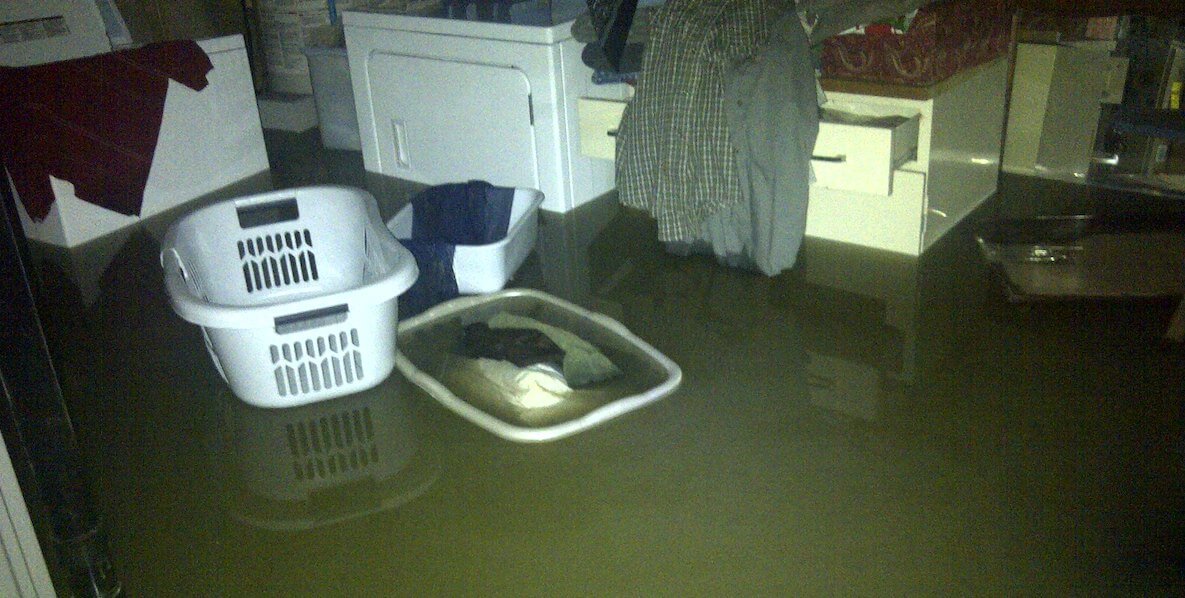On the evening of June 14, one of this summer’s many epic downpours hit Philly. My toddler was asleep and I was watching TV with my husband when we heard water flowing. We ran to the basement to find the toilet overflowing with clear water. Then tan water. Then brown water. Then water with shit floating in it—yes, that kind of shit.
The heavy rain overwhelmed Philly’s old sewer system and pushed wastewater into my Center City house. The pressure was so strong that at one point, the toilet bowl looked like the shitty version of Old Faithful.
I’ve told so many City officials that there is literally s**t pouring into my house, through no fault of my own. I’ve gotten no sympathy, no apologies, no responsibility taken, and no work done to fix the problem.
It only lasted maybe 15 minutes, but our whole basement ended up covered in sewage. I started calling every water remediation company around (and so did everyone else who got flooded that night)—one finally agreed to come out around midnight.
After I confirmed that we would be turning the costs into our insurance company (thank goodness we had just added sewer and drain coverage to our policy this year), they happily scheduled a clean-up crew for the next morning. Until then, my husband and I put on our rain boots and tried to rescue as much from the basement as possible, while throwing away at least a hundred damaged items (that is, bagging the sewage-cover items and leaving them in the sun on my back patio for weeks until the insurance claim was processed). Luckily, we keep most things on shelves, but with a kid around, stuff ends up on the floor.
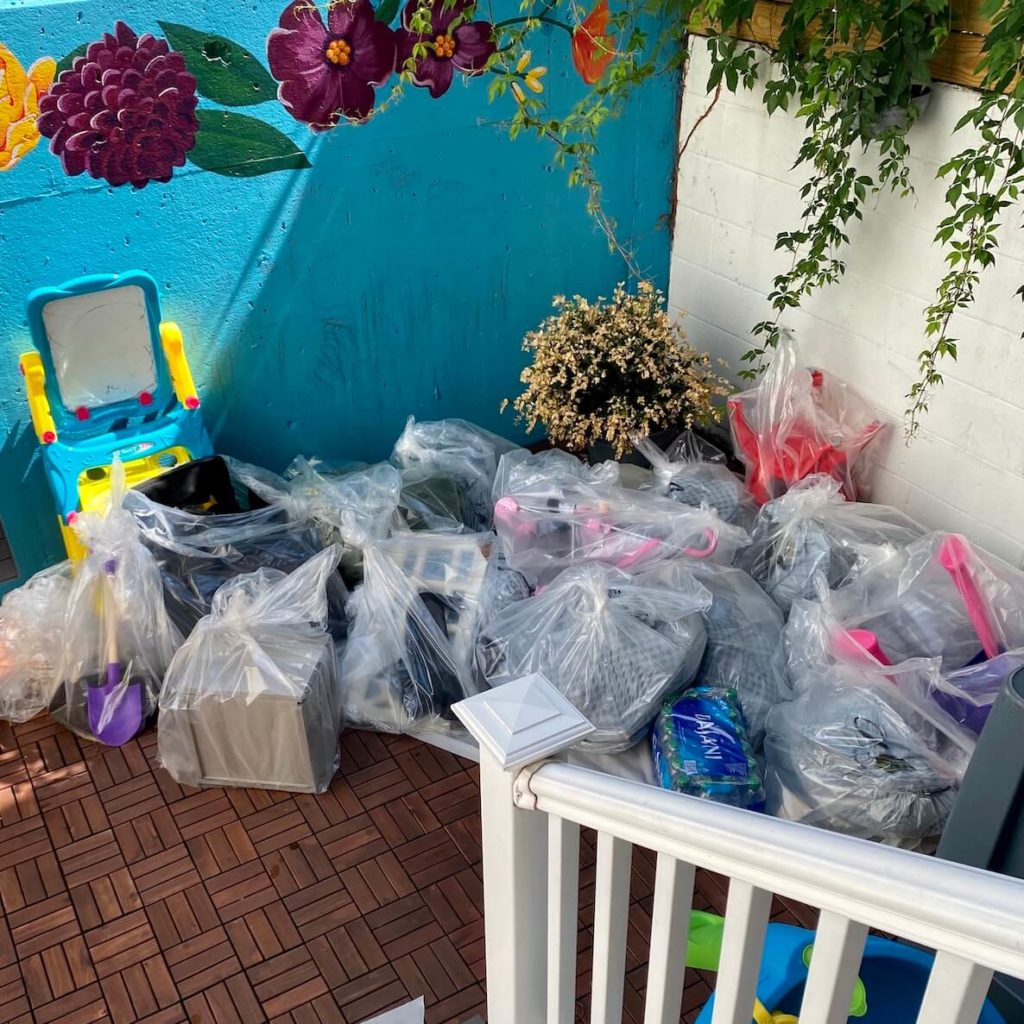
The remediation company had to cut out the drywall from the baseboards to two-feet up throughout the whole basement. We lost the vanity/sink, a lot of my little one’s favorite toys, and a few irreplaceable items, like a cheap but beloved little purse I bought on the streets of London the first time I ever travelled without my parents.
Houses all around Center City and South Philly flooded that night. The next day, strangers got to talking online about what to do. The big topic of discussion was the Philadelphia Water Department’s Basement Backup Protection Program, which was created a number of years ago. Its mission: “Providing free plumbing upgrades to homeowners who experience water backing up through basement fixtures during wet weather.” Sounds like us, so, after a few other qualifying steps, I applied.
Here’s what happened.
Steps we took to get the Philadelphia Water Department to help prevent future floods:
- Within minutes of the flood starting around 9:30 p.m. on June 14, I called PWD’s water emergency hotline. Their website said that if sewage is entering your home, an inspector will come out ASAP to test it and confirm if it’s from the city sewers. An automated voice reads off a couple dozen addresses where the city is experiencing water emergencies, aka main breaks and such… not applicable to me, so I wait. No one answers. I leave a message and… (grossness trigger warning) collect some of the sewage in a tupperware container, just in case the inspector really does need to test it in order for the city to address the problem.
- Eventually, the water receded, thanks to our sump pump, leaving a spotty brown film on our floor and baseboards. I get a shower and go to bed around 2 a.m.
- Around 7 a.m., a PWD rep finally calls back. He says if the flooding was in my house, it’s not the city’s responsibility. The pipes that run from the sewer to our house are the homeowner’s problem, he says.
- I call American Water Resources, a city-promoted company that I pay for “Water & Sewer Line Protection” aka “the pipes that run from the sewer to our house.” They say this isn’t their responsibility, but the city’s.
- The next day, I have my regular plumber out to snake the drains and see if the flood could have been our fault, maybe an errant baby wipe went down the drain. Nope, he says, it’s totally clear. And sends us a $185 bill for the 10-minute job.
- Then, I hired City Plumbing to do a video inspection of the pipe that runs from the sewer to our house. If there’s a broken or crooked pipe, that could explain the flood. Nope, everything is in good shape. But, they say, the area under one of the manhole covers on our street is “bone dry” which means there is a blockage somewhere on the street. They say to call PWD and then charge me $300. They also mention that we could stop the problem by removing the basement toilet (!!?!). But say that the sewage would probably come in through the washing machine, like it did at my neighbor’s house… they gave up and moved to the Main Line this fall.
- I call PWD again and tell them what City Plumbing said.
- They send an inspector out that afternoon! He doesn’t knock on my door, but I see him checking the manhole covers. I go out to chat with him and he says everything looks fine. I politely reiterate several times what the plumber said and he says he’ll check again.While he’s there, he says the only way to prevent this from happening again is to get a “backwater valve” installed through PWD’s Basement Backup Protection Program. Finally, an answer! He does warn me, though, that it’s going to take a long time and I’ll need to follow up a lot.
- We fill out the application, and wait.
- After two weeks and no answer, I email my City Council Member, Mark Squilla, to ask for help. Within two hours, he loops in a PWD rep.
- Within eight hours, PWD separately schedules an inspector to come. Never underestimate the power of our elected officials, folks.
- The inspector immediately confirms that we’re eligible for a backwater valve AND a downspout modification (which diverts water from the roof away from our drains).It won’t cost us anything, he says. But, there is a mountain of paperwork to fill out — most of which exempts the City from any further responsibility in the future. He asks me to sign it on the spot, but I ask to hold onto it, so that we can read what we’re signing.We’re not happy about letting the City off the hook for any future issues, but if this will prevent shit from flowing into my house, where do I sign?
- In mid-July, we send the papers in certified mail (as I do with anything going to City government).
- On July 26, I email PWD to confirm receipt and hear nothing.
- On August 10, I email Council Member Squilla and the PWD rep again with a polite follow up. The equally polite PWD rep says they will check on it. I hear nothing back.
- On August 29, I follow up with the PWD rep and am told that it’s under review.
- In early September, someone from the water department leaves me a voicemail to “make an appointment for an inspector to come and see whether we would be a candidate” for the program. This makes no sense, since we already had an inspector come months before and sent the forms back all signed (via certified mail). I called back and left a voicemail for the rep saying that and no one gets back to me. The mystery continues.
- On September 15, I email Council Member Squilla and the PWD rep to tell them about the voicemail and ask what’s up. No response.
- On September 23, our toilet starts to overflow during a rain storm again! It doesn’t get too bad and we’re able to clean it up ourselves.
- As it’s overflowing, I call the water department’s “emergency line,” but they have no idea how to help me and tell me to reach out to the person in charge of the Basement Backup Protection Program.
- That day, I email Council Member Squilla and the PWD rep again… and I’m not as polite as usual: I think it’s fair to call this an emergency situation and one that the city is failing to address…. I know things are complicated for everyone and the city has other problems, but it has been months and our home continues to be damaged and our family’s health put at risk. We need to get this fixed ASAP. We simply can’t live under constant threat of city sewage pouring into our home.
- The PWD rep quickly writes back to say that the department is “still working through a backlog of applications that came in after the large rain events over the summer.”
- Council Member Squilla loops in a different PWD rep to ask if the sewer lines are clear. No one responds. Or at least no one copies me on a response, maybe they wrote back to Squilla separately (benefit of the doubt?).
- On September 30, I email Squilla and the PWD rep to follow up. Are you sensing a theme here?
- On October 5, a different PWD rep calls me to tell me that the application is approved and a plumber will be in touch with me.It is now December and I haven’t heard anything about scheduling this work.
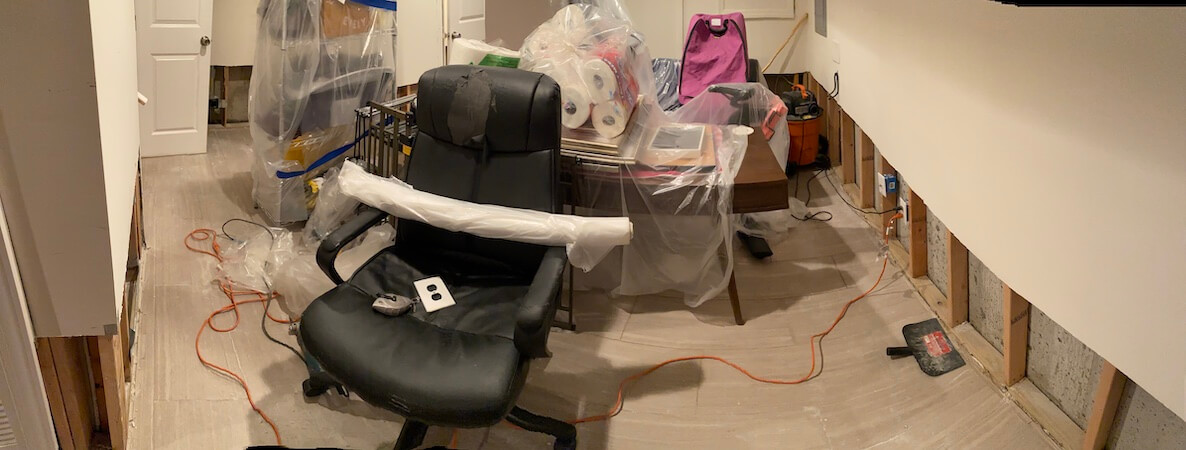
Time Spent:
- Cleaning up basement after flood: 5 hours ourselves (8 hours for the remediation team)
- Researching and ordering replacement items: 10 hours
- Dealing with insurance company: 15 hours
- Scheduling plumbers (two), getting quotes for drywall repair, painter: 4 hours
- Emailing with Council Member Squilla: 1.5 hours
- Calls, emails, mail, reviewing docs, and inspections with PWD: 4.5 hours
Total Time Spent: 40 hours
Costs:
- Insurance deductible: $1,000
- Plumber to snake drain: $185
- Plumber to do video inspection: $300
- Certified Mail: $3.75
- My insurance claim ran about $10,000 for remediation, repairs and replacements.
Total Costs: $1,488.75 out of pocket + $10,000 covered by insurance
Total in hassle:
- Lost access for six weeks to my basement, which is where I work from home.
- Lost access to my washer and dryer for weeks at a time during the repairs.
- Lost access for six weeks to my workout equipment in the basement.
- My toddler asks regularly if it’s going to flood again and ruin her toys again.
- Now that we’ve had a flood claim, we can’t get a good rate with any other insurance company for five years.
Result: Zilch.
Takeaways: The “Philly Shrug” is real. I’ve told so many City officials that there is literally shit pouring into my house, through no fault of my own. I’ve gotten no sympathy, no apologies, no responsibility taken, and no work done to fix the problem.
And that’s all after I diligently followed up with my Council Member and PWD many times. Imagine the process for someone who can’t spend their work days doing these phone calls and emails, or be home to deal with contractors.
Lightning Bolt Rating: Zero
I’m terrified every time it rains, especially when I’m not home to check on the toilet. I’ll write an update when/if this work is ever completed. But, I might just move to the suburbs before then.
![]()
RELATED
Header photo courtesy of The Bees / FlickrMystery Shopper: How hard is it to get rid of illegal dumpsters?



